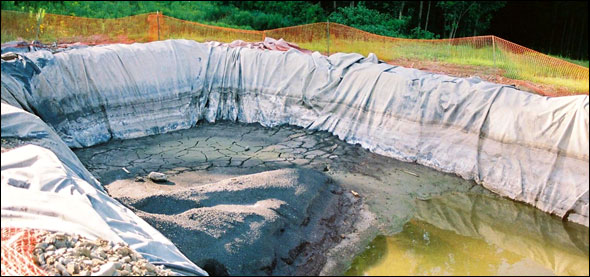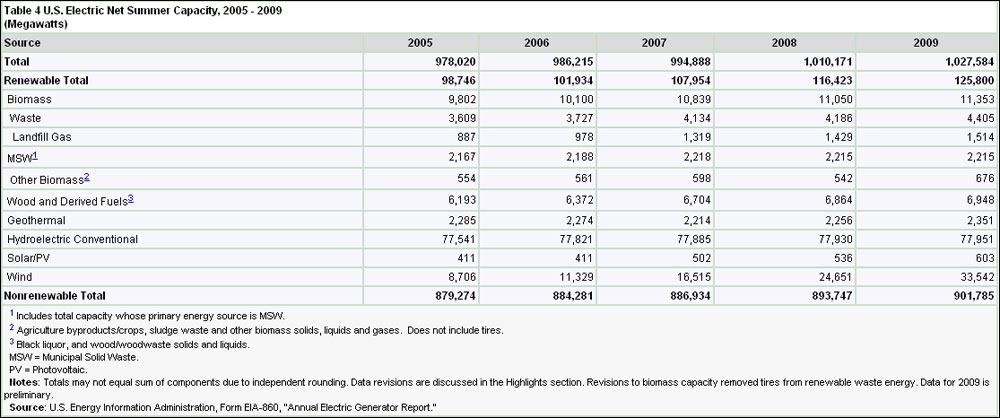EPA and Halliburton Skirmish — Promises of Safer Fracking Fluid
While denying an EPA disclosure request, Halliburton promises safer fracking fluid and more disclosure.

Just a week after Halliburton had refused to release information on its hydraulic fracturing fluids to the U.S. Environmental Protection Agency, the company promised to disclose the chemicals generally associated with fracking—and it announced the creation of a new, safer fluid.
The moves come as the U.S. oil and gas industry faces increasing scrutiny over hydraulic fracturing, or fracking—the controversial drilling technique which releases oil and natural gas trapped within rock formations by injecting water and chemicals deep underground to shatter the rock. Earlier this month, the EPA requested that nine companies disclose a complete list of chemicals used in natural gas fracking, and Haliburton was the only company to refuse.
Houston-based Halliburton is one of the world’s largest providers of products and services to the oil and gas industry, as well as North America’s largest provider of hydraulic fracturing services. The Halliburton website boasts of the company’s role in pioneering the hydraulic fracturing drilling technique more than 60 years ago in the giant Hugoton Field in Kansas.
“The safe and efficient use of this technology has never been more important or in greater demand than it is right now,” David Adams, vice president of Halliburton’s production enhancement product service line, acknowledged in a news release on Monday.
Halliburton announced that it had again “set a new standard” in the industry with the introduction of a new hydraulic fracturing system. The fracking fluids will be made with materials “sourced entirely from the food industry,” the company said in the news release. Additionally, the system will “significantly [reduce] the need for freshwater” with on-site wastewater recycling and will control bacteria with a UV light, which replaces traditional chemical additives.
Halliburton also announced the creation of a new website that will disclose information on the chemicals involved with hydraulic fracturing in every U.S. state that the company extracts from, starting with those chemicals used in Pennsylvania’s Marcellus Shale formation. However, the company gave no indication of how much information would be disclosed, who it would be disclosed to, or how soon it would be disclosed.
Natural gas, say energy industry executives and policy makers in a number of states, could be the fuel of the 21st century. These individuals assert that natural gas burns much more cleanly than coal or oil, yielding half the carbon emissions of competing fossil fuels. And although supporters say the practice is safe since authorities have not linked fracking to public health problems or contaminated drinking water, a congressionally mandated EPA study is currently underway.
Earlier this month, Halliburton refused to provide the EPA with the standard operating procedures for the type and amount of chemicals and water used in fracking, as well as information on the specific chemicals used in specific wells and the location of every fracking job undertaken in the previous year or planned for next year. On November 9, the EPA announced a subpoena against Halliburton for this information.
A Halliburton spokesperson characterized the EPA’s information demands as “unreasonable” in an MSNBC report on the dispute, while an EPA official said Halliburton’s failure to disclose this information was impeding the EPA’s ability to determine whether the chemical mixtures used in fracking pose a threat to drinking water.
Although geologists say that the Marcellus Shale—which lies beneath New York, Pennsylvania, West Virginia, and Ohio—could become the most productive natural gas field in the U.S. by providing the nation’s needs for up to twenty years, many environmentalists and journalists argue that the new natural gas play is not without its own risks. According to ProPublica, a non-profit investigative news organization, fracking has produced evidence of serious water contamination in several states.
Additionally, the state of New York has instituted a moratorium on drilling pending research by state authorities, and just last month the Pennsylvania governor signed a ban on further leases of state forest land for fracking. Pittsburgh’s city council has unanimously voted to ban natural gas drilling.
And now, with the oil and gas company’s reluctance to release specific information on the chemicals used in fracking fluid, proprietary trade secrets are preventing a federal agency from conducting a study on the health of the public. A provision of the Energy Policy Act of 2005 known as the “Halliburton loophole” stripped the EPA of its authority to regulate hydraulic fracturing. At the time, U.S. Vice President Dick Cheney, a former chief executive of Halliburton, helped shape the bill and oversaw the 2001 energy task force that led to many of its provisions.
Sources: Halliburton, MSNBC, New York Times, ProPublica









Leave a Reply
Want to join the discussion?Feel free to contribute!